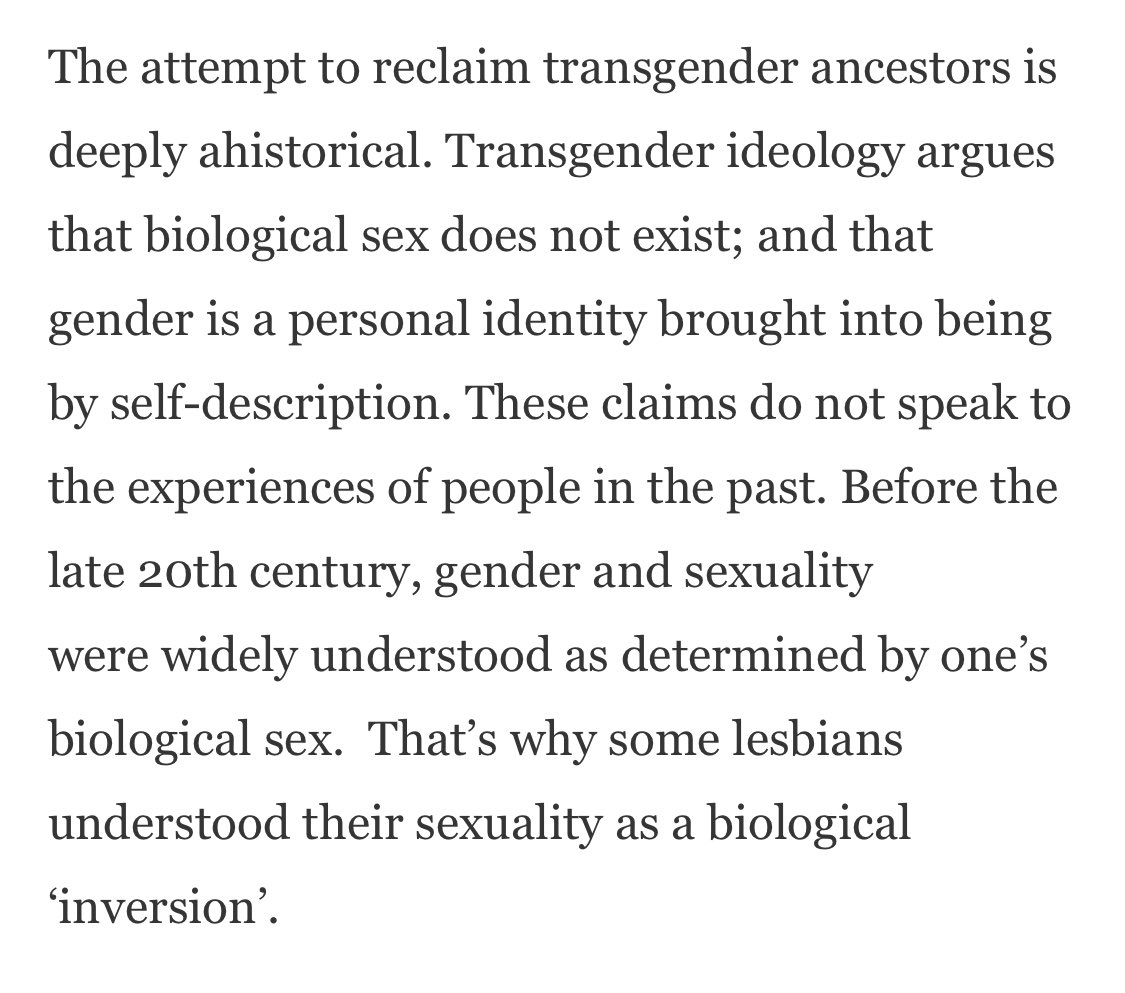I’ve been thinking so much recently about this claim, articulated by the anti-trans activist (and Oxford prof) Selina Todd in her talk “Feminism, postmodernism, and woman’s oppression,” a talk she gave to A Woman’s Place last year. It’s very bad, but *interestingly* bad I think.
The key claim is that “before the late 20th century, gender and sexuality were widely understood as determined by one’s biological sex.” Which is a claim so huge it’s kind of difficult to even dispute.
One could say, of course, that “gender” and “sexuality” are both concepts with a remarkably modern pedigree - even that both are technologies *of* modernity designed to extend the biopolitical power of the state. But that only seems to go so far.
Another fairly obvious response is that this argument offers no account of any non-secular account of sexual relations. For lots of people “before the late 20th century,” and plenty still, gender and sexuality are divinely appointed, in one way or another.
But what’s really interesting about this idea is not what it leaves out, but the fantasy of embodiment it creates. Imagine, going through a day, and every time one experiences a feeling connected with gender or sexuality, knowing, immanently, that it was caused by “biology.”
The immanence of the knowledge in question is its vital characteristic: one does not know what one’s biology “is” because one is told by a biologist (or any other ideological state apparatus) - one just *knows*. And what one knows is constantly reflected back at one by the state.
There a lot to be said, too, about “some lesbians understood their sexuality as a biological inversion,” too. Lesbian = transhistorical category, absolute, self-evident. Inversion = superstition.
The two different kinds of understanding flagged towards the end of the passage point to a problem with the idea of immanent knowledge: if I understand my gender as biological, but I also understand that as inverted, how would I choose between my understandings?
The last point I’ll make is that this is entirely a pseudo-problem. Most people, now as ever, do not “understand their gender and sexuality” at all, at least not in this sense. Most people habituate themselves to it, but hardly walk around with an immanent awareness of it.
To take a Victorian example: Eliot’s /Mill on the Floss/. In a novel intimately concerned with evolutionary theory, with sex, and with the question of immanent knowledge, Maggie doesn’t *understand* her desire - she simply experiences it, and responds to it as best she can.
(I’ll leave it to others better qualified on the subject to explain why Todd’s theory of immanent knowledge suggests a serious misreading of Darwin, but it does. The selfish gene does not know *why* it breeds.)
Okay, so the last (inevitable) twist: at least one group of people *does* articulate a claim entailing immanent knowledge of gender or sexuality at all, and that group is *trans people themselves.*
We say: “this is something I know about myself, before and after the imposition of external regimes of knowledge. Even though I may not know where this knowledge comes from, I possess it.”
So anyway, I guess I wonder whether we might not have another example of egg theory: that kind of argument about the world that claims (1) transition is impossible and (2) transition is immanently, and eminently, desirable.

 Read on Twitter
Read on Twitter


